The Montreal Canadiens’ annual golf tournament is a tradition in several ways. It arguably marks the unofficial end to the offseason for the Habs. It also marks the first opportunity for most of the Canadiens themselves to get in front of the mic once they’re back in town for training camp and get in front of expectations before the season starts.
This 2022 edition of the tournament was no different in that sense, but it was “different,” in the sense that one of the recurring stances was that 2022-23 won’t be like 2021-22, when the Habs finished in the last place. There’s every reason to agree in principle. There’s a sense of optimism in the air based on how the rebuild is going. However, any suggestion it’s over altogether, which several Habs made, is hard to take seriously.
In fairness, the Canadiens almost have to make that their party line. It’s a business after all, and promoting a team that will realistically be in the running for a second straight lottery pick is hard to do. So, take what the Canadiens say with a grain of salt, based on these five reasons:
5. Connor Bedard at 2023 NHL Draft
One-season turnarounds are possible on the part of the Canadiens. However, it seems odd at the very least that the Habs would be ready to turn it around so fast this specific 2022-23 season, when a) they finished dead-last in the standings in 2021-22 and b) the 2023 NHL Entry Draft is especially top-heavy, with projected generational talents like Connor Bedard, Matvei Michkov and Adam Fantilli up for grabs.
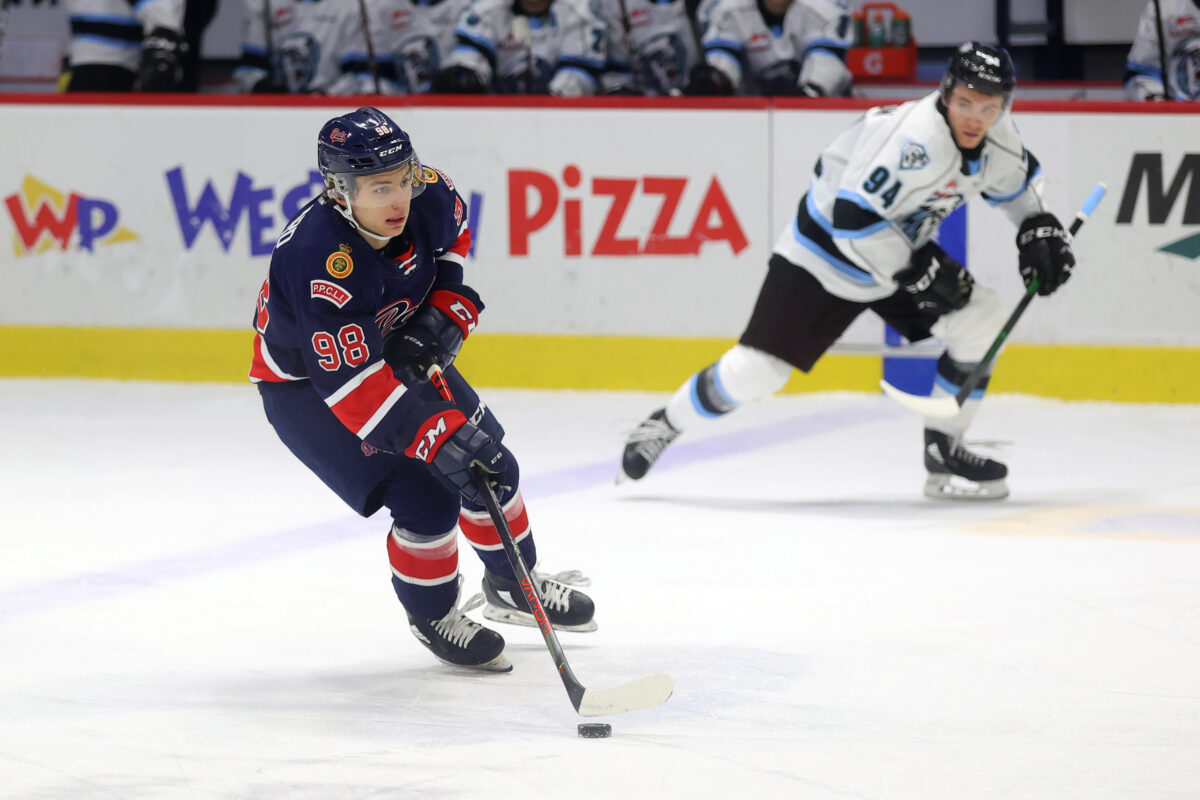
Assuming the rules of 2022 NHL Draft Lottery remain intact, the team that finishes last overall would be guaranteed one of those top three players. So, going out of one’s way to try to make the playoffs when the status quo is likelier to have more of a positive long-term impact on an organization is questionable. Stupid more like it.
No one’s saying that means the Canadiens are tanking (even if they maybe should). They’d have their hands full just trying to keep up with the Chicago Blackhawks in that regard. However, to explicitly try to speed up a rebuild to the point that you’re done after one season to deliberately miss out on a franchise-altering talent makes no sense. It would be like going on a single roller coaster at an amusement park. You’ve already paid for the full day (albeit in sweat and tears and maybe a little throw-up last season). You may as well get the most out of it.
Now, this is arguably more so cold, hard logic than a sign specifically attributed to the Canadiens. So, it takes the No. 5 spot on this list. No. 4 is harder for those wishing for a competitive team this coming season to wish away.
4. Kent Hughes’ Introductory Press Conference
Now, to be fair, general manager Kent Hughes kind of played down talk of a rebuild when he was first hired. At Hughes’ introductory press conference, he didn’t outright dismiss the idea of one, but didn’t call it a rebuild either, saying “The word doesn’t matter to me, whether it’s rebuild, retool, reset. My vision is to build a team that can win for years.”
On that note, he added “In a perfect world, we would be an offensive-minded hockey club. I don’t think you can be successful in the National Hockey League [NHL] today without being a defensively responsible team, but, we see teams in the [NHL]… where the focus is strictly defensive and others are more creative. I envision a team that plays fast, but plays fast with the puck — a possession hockey team.”
Hughes has delivered in principle on the offense, as the Canadiens are now fairly deep up front to the point that, when healthy, there are 16 NHL-caliber forwards vying for roster spots. However, the notion of a defensively responsible team? The Canadiens have far to go, without having actually improved relative to last season, arguably downgrading from their No. 1 defenseman of a year ago in Jeff Petry, when they traded him for Mike Matheson.
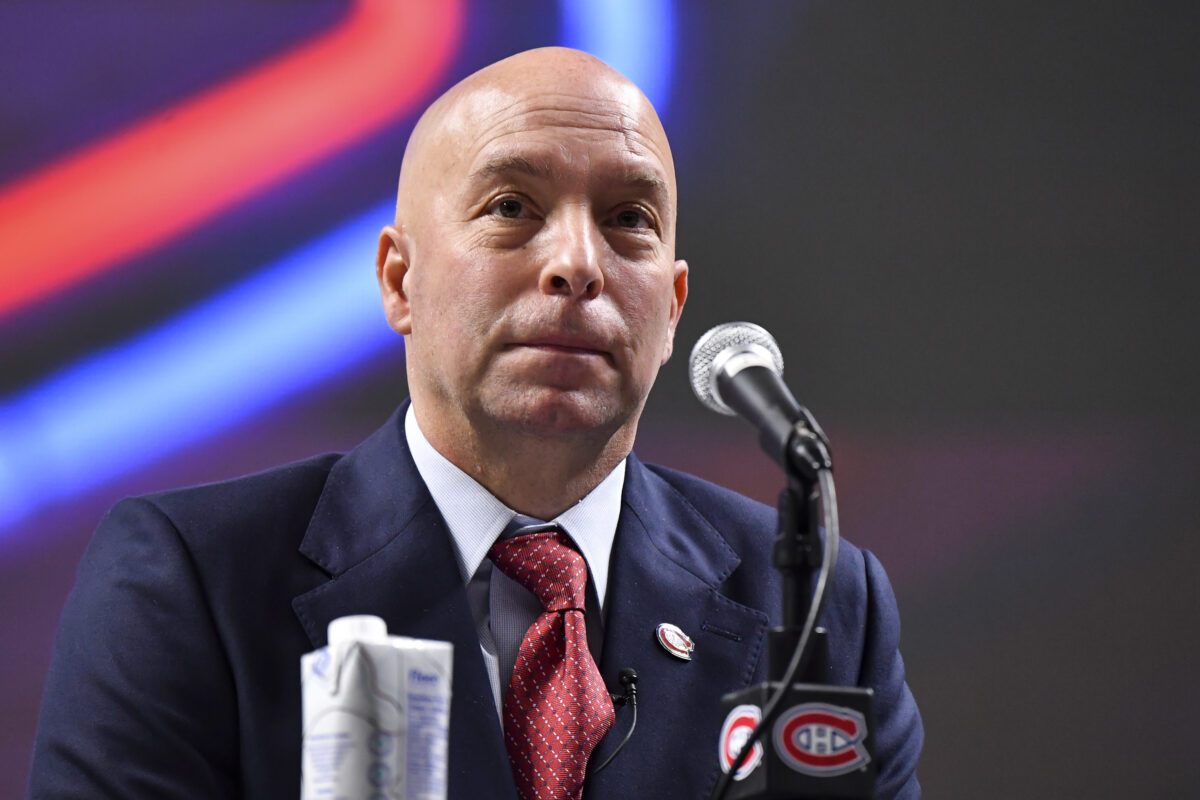
The rest of the defense corps, which gave up a 30th-ranked 34.4 shots per game, is effectively the same, with perhaps more of an emphasis on the inexperience of the likes of Jordan Harris, Justin Barron and maybe Kaiden Guhle. Developing them should be the focus, because playing the likes of Joel Edmundson, David Savard and Chris Wideman to the point that their skate blades dull is hardly a recipe for success.
Obviously, the same goes for playing the former three. However, in such an instance, you’re at least investing in your long-term future. It’s hard to envision any of the latter three staying once their current contracts expire. So, more likely than not, the team’s defensive play will be rife with mistakes and shots and goals against, but that’s all right (as long as the Canadiens are in fact rebuilding).
3. No Carey Price
A big part of that equation comes in the form of Carey Price going on long-term injured reserve (LTIR). On top of that, Hughes has gone on record saying Price may not play at all this coming season, with his career as a whole in jeopardy. Hughes’s words only further haunt any Habs suggesting the Canadiens are planning to contend for a playoff spot.
Instead of trying to fill the obvious hole in net, what do the Canadiens do? Do they sign someone new? No. Do they trade for a replacement? No. Do they go with the status quo comprising a veteran backup, a third-string goalie and their top goalie prospect, who has yet to prove himself capable of playing in the NHL? Ding, ding, ding.
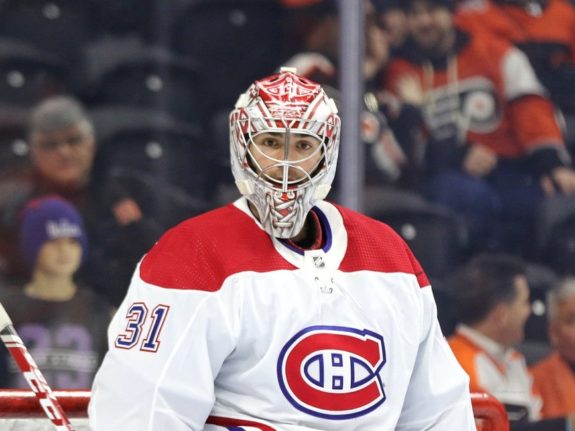
Ultimately, the fact the Canadiens just re-signed Cayden Primeau and Samuel Montembeault and are reported to be planning on extending Jake Allen speaks to a prolonged rebuild. Nothing less. It’s not necessarily a bad strategy in that Allen and Montembeault are relatively expendable and can serve as fodder until the defense grows into itself and Primeau is ready for regular NHL action. It’s just the wrong strategy if you actually want to win like a few games.
Price going on LTIR is a blessing in disguise. It’s a massive opportunity, in that the Canadiens are technically albeit unofficially free of his horrible contract and $10.5 million cap hit. However, there is so much they could have done with that newfound cap space.
Related: What If… Canadiens Got Price’s Cap Hit off the Books?
Ultimately though, the Canadiens didn’t do anything with it that they should have if they were legitimately looking to compete, starting with acquiring a replacement in net. The only possible conclusion is they’re not. Maybe a replacement wasn’t available and Hughes is simply doing the best he can with what he’s got. Fair enough, but what he’s got simply isn’t good enough, making a continued rebuild the only way to go.
2. Acquisition of Sean Monahan
Instead, the Canadiens effectively used the cap space to trade for a top-six center in Sean Monahan… when they just made their first-line center, Nick Suzuki, captain and still have their second-line center in Christian Dvorak from last season under contract. They also had just acquired Kirby Dach via trade at the Draft. Curious.
Maybe you simply drop Dvorak down to the third spot, which is probably better suited to his skill set. Maybe Dach doesn’t end up playing center at all based on the fact he has a career 34.6% faceoff success rate. All that runs counter to Hughes saying at the Draft that the Canadiens see Dach developing into a “very special centerman,” though.
The only logical conclusion is Monahan was brought in to insulate Dach, i.e., help him to develop. And, with Monahan only scoring 99 points over the last three seasons largely due to hip problems, you can’t really count on him becoming the player he was at his peak, even if he has had hip surgeries to hopefully get him healthy.
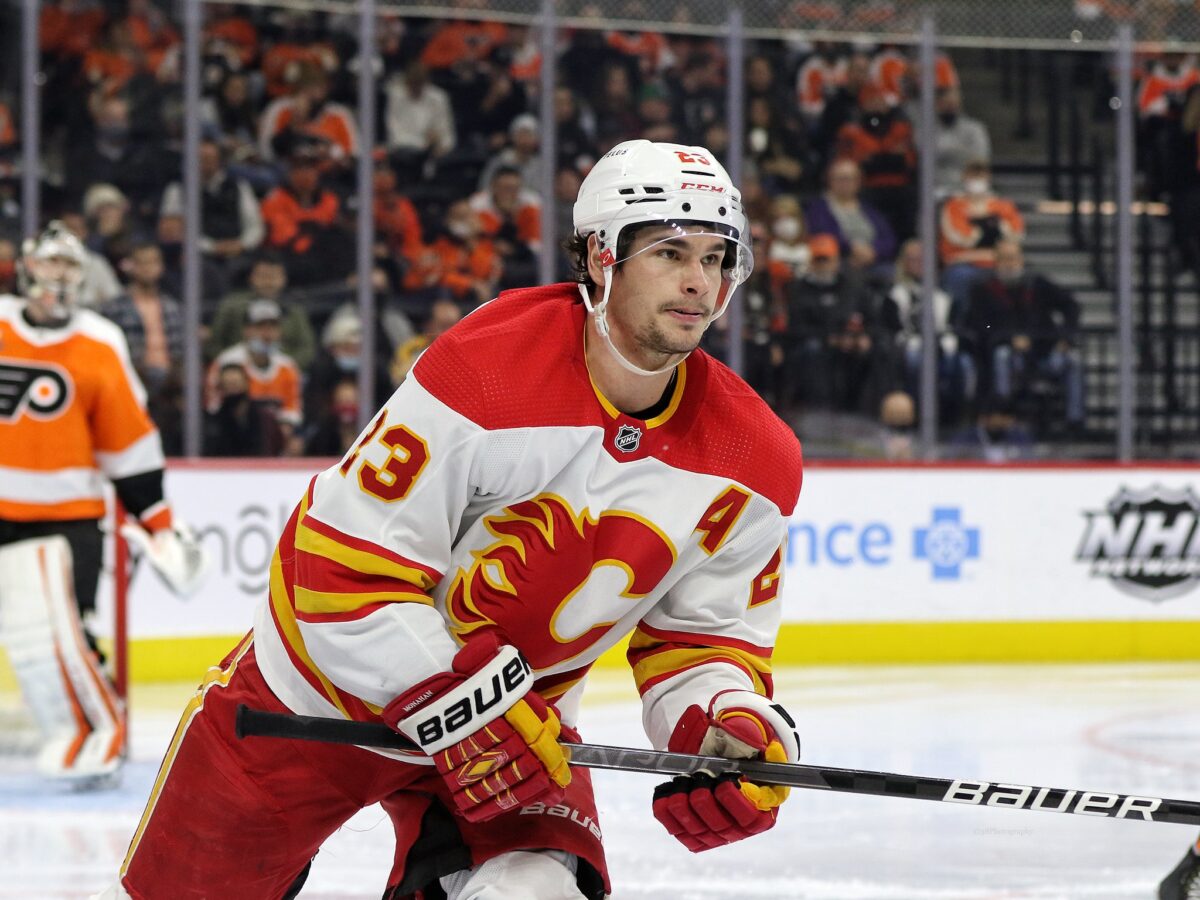
On the surface, Monahan may be the type of player you go after to push you over the edge. In actuality, he’s the type of player you acquire, taking on his $6.375 million cap hit, to get his former team out of a cap jam in exchange for a conditional first-round pick. The Monahan trade was a master move on the part of the Hughes, but only if the Canadiens are resigned to losing more in the short term.
Just look at Monahan’s former team in the Calgary Flames. The departures of Johnny Gaudreau and Matthew Tkachuk could have signaled the start of a rebuild, but they took the lemons they were given and made lemonade, by first getting a haul for Tkachuk and then signing Nazem Kadri, arguably the top free-agent available. To get the space to sign Kadri, they had to trade Monahan, meaning to go for it they both had to give up and give up on Monahan. In comparison, the Canadiens took the lemons they were given and bit in like they were apples by taking him on instead.
1. No Major Free-Agent Signings
Ultimately, Hughes’ actions speak louder than any of his words, or rather his lack of action on the free-agent market. Whereas the Flames went after Kadri, Hughes not only said Habs fans shouldn’t expect them to sign Kadri, but that there won’t be major signings at all.
Needless to say, Hughes’ has stayed true to his words. The only unrestricted-free-agent signings the Canadiens have made have been depth signings, players likelier to play in the American Hockey League than the NHL. So, in spite of the fact the Canadiens don’t have a No. 1 defenseman, with a right side that looks like a wasteland, or a No. 1 goalie, Hughes abstained from taking a flier on, well, anybody.
That’s fine, though. The Canadiens, put simply, aren’t contending for a playoff spot, let alone the Stanley Cup, with free agents only really making sense in that context, to put you over the top. More often than not, teams regret the long-term free-agent signings they make literally only a few years in. So, avoiding them is actually smart especially if you’re looking to keep your cap options open for when you’re ready to compete.
For the time being, the Canadiens are in for a lot of losing and fans are in for a lot of disappointment if they take what they claimed at the golf tournament at face value. That isn’t to say the Habs are 100% lying, though. They’re more so lying to themselves.
These are professional hockey players who step on the ice every time looking to win. They may not be successful, but it doesn’t mean they’re not trying. They’re not getting paid to have a defeatist attitude. Otherwise, the Canadiens probably wouldn’t want to be paying them in the first place. The fans wouldn’t want them either.
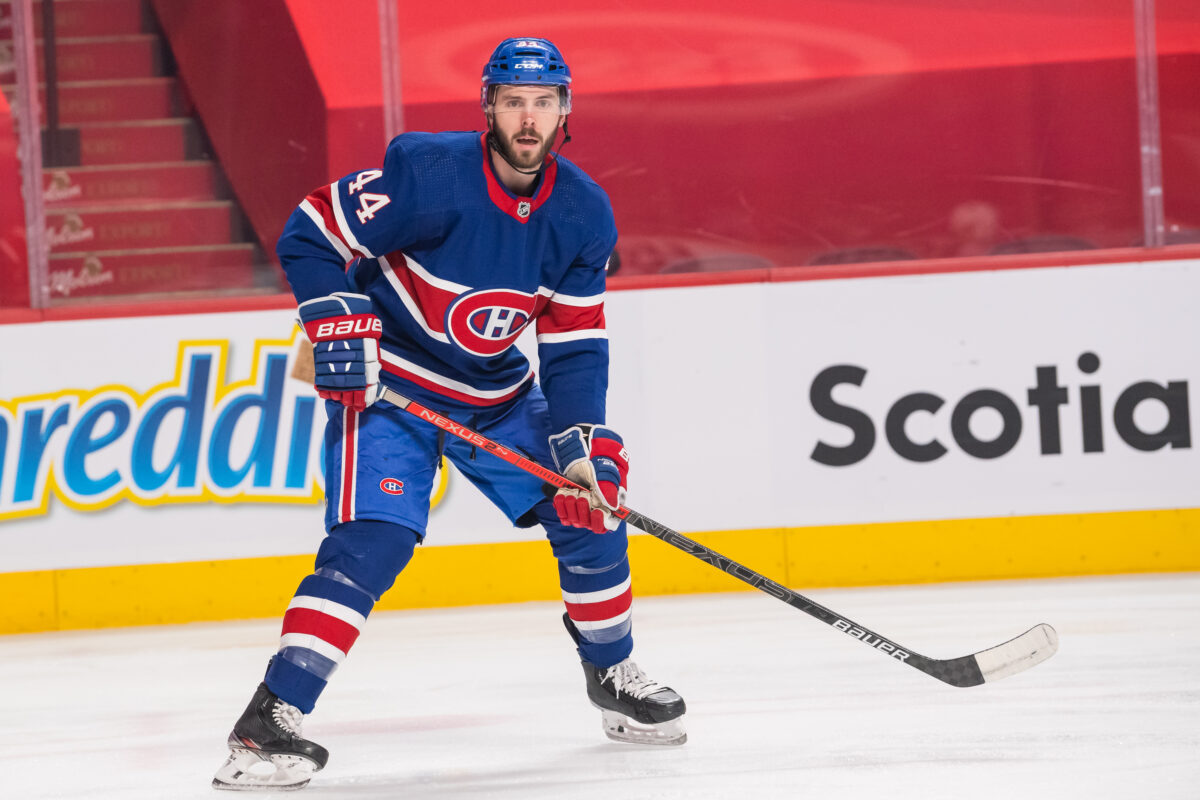
All that matters is, as Hughes said when he first came on board, the Canadiens are looking to build a team that can win for years, which, when you think about it, is a refreshing change of pace. How many seasons in the recent past did the Canadiens struggle to win in the first place, and then, if they did, struggle to stay off the playoff bubble in subsequent seasons?
Far too often. Losing in the short term is the best way to ensure that long-term success. It’s not necessarily tanking, but it is undeniably a rebuild. The Habs themselves can deny it all they want, but the proof is plain to see and, quite frankly, it’s for the best.
Maybe the Habs do shockingly make the playoffs. Admittedly, anything is possible, but everything would have to go right for the Habs (and everything wrong for everyone else). Objectively speaking, it would be wrong for the Habs too, based on the clear-cut intentions of Habs management. They’re both preparing and hoping for the worst… and no one should blame them.